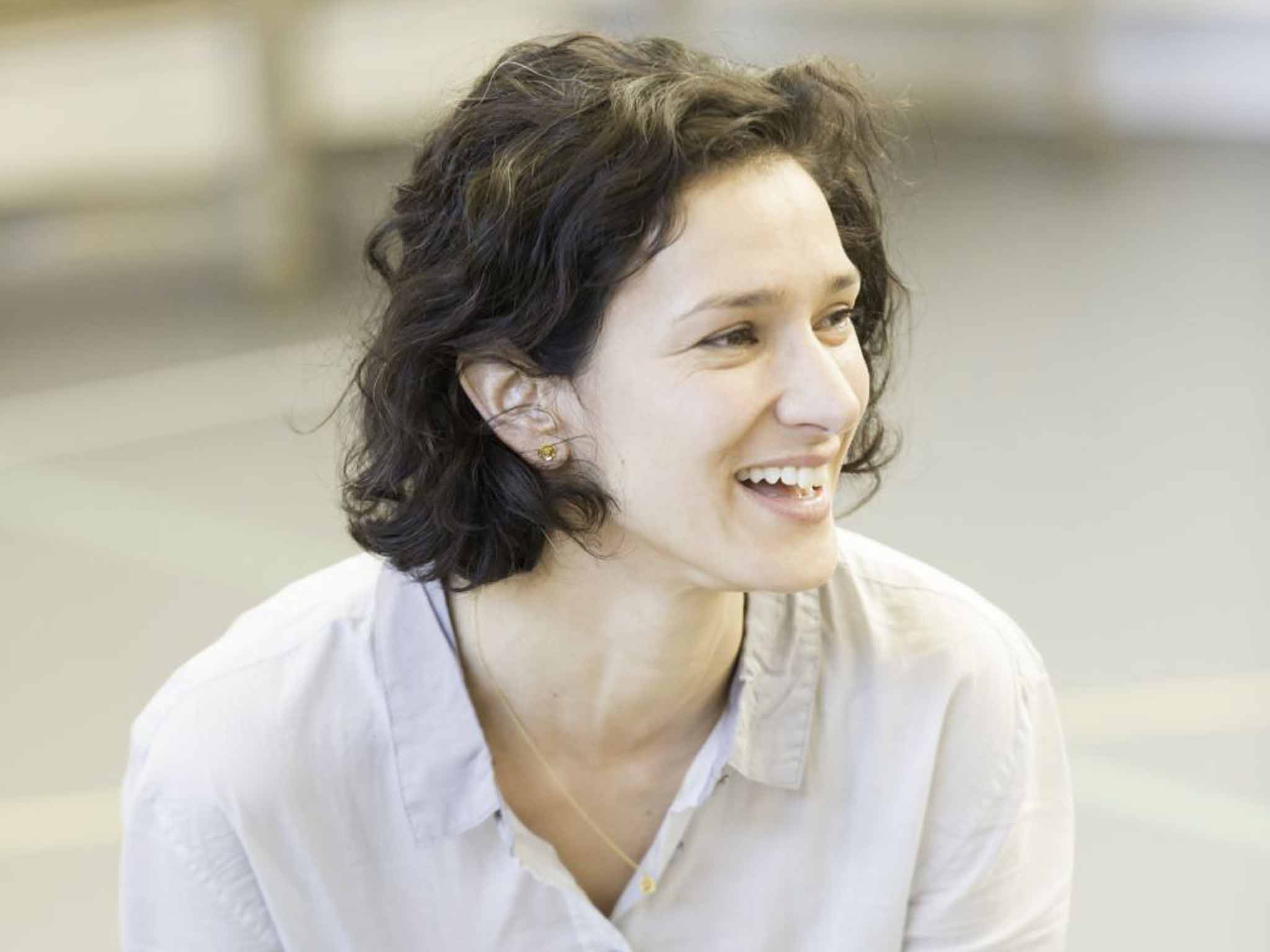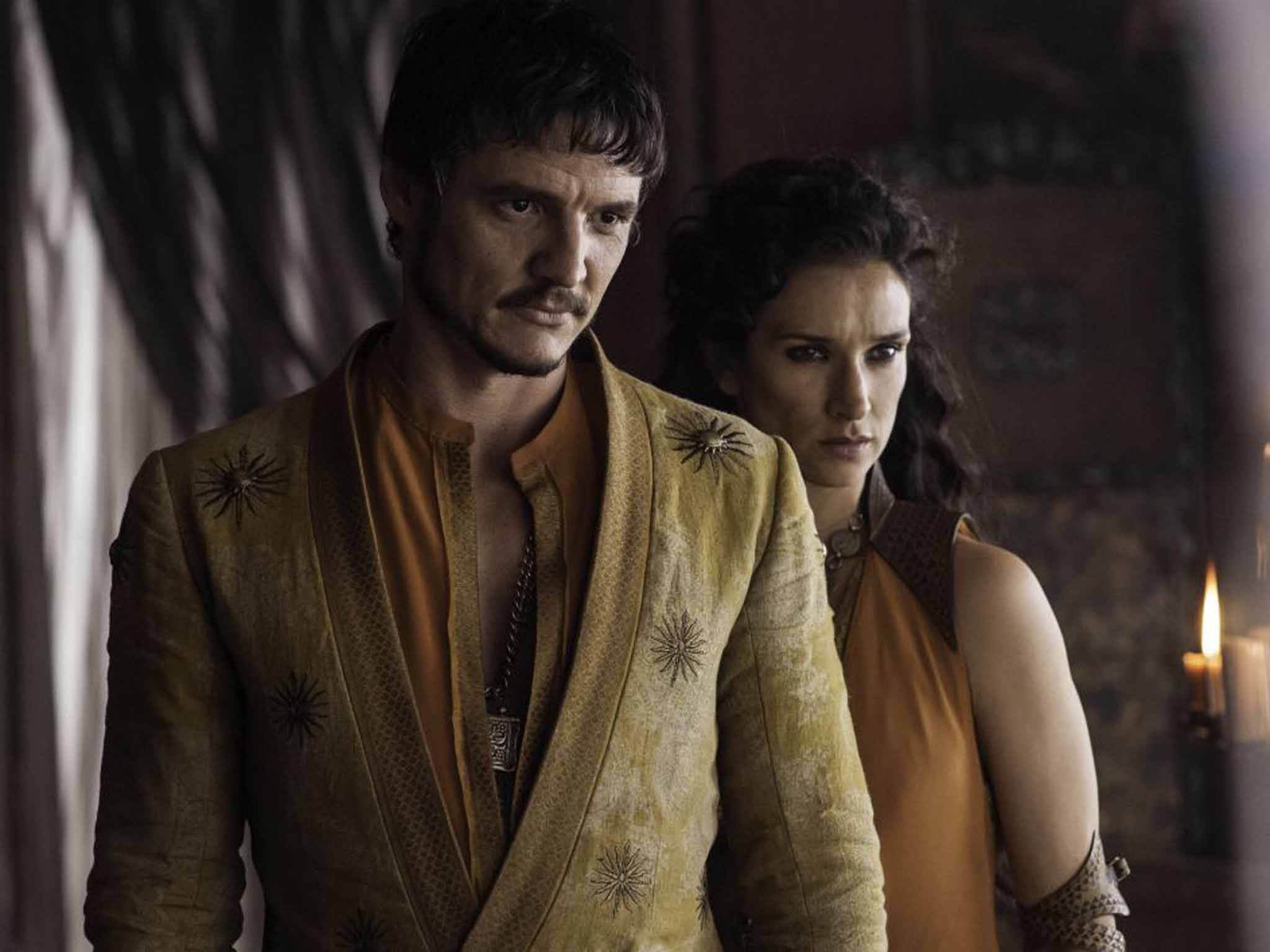Indira Varma: From Game of Thrones to Man and Superman
Indira Varma, who plays the libidinous bisexual bastard daughter of a nobleman in 'Game of Thrones', is now on stage opposite Ralph Fiennes in 'Man and Superman'. Sexy, powerful roles are just her thing, she tells Holly Williams

George Bernard Shaw's play may be entitled Man and Superman, but I've just met its superwoman. A new production of this rarely performed play opens at the National Theatre next week, directed by Simon Godwin, and starring Ralph Fiennes as Shaw's speechifying philosopher, Jack Tanner. But Indira Varma – who plays his romantic sparring partner Ann – is in no doubt as to the importance of the female lead in this epic play.
"Ann, who does not speak half as much as Tanner, should bear the mantle for women," the 41-year-old actress says. "He wants to be the superman, philosophical man or whatever, but I feel Ann is that too – she just doesn't talk as much. She's practical."
First published in 1903, Man and Superman is an ambitious, if unwieldy, play. "A comedy and a philosophy," Shaw accurately subtitled it. We begin with a delightful, mischievous romance set among the upper classes; Ann is appointed, by her dead father, two guardians – one a pillar of the establishment, the other a radical who espouses free love and Nietzschean philosophy. This latter is Tanner, and he is, alas, a little too occupied with theories – including one that it is always women who ensnare men – to notice that he is about to be captured by the vivacious, irresistible, determined Ann himself… When he finally twigs, he flees in a motorcar across Europe, before being held up by bandits in Spain.
At this point – and apologies for such a lengthy summary, but the play is 222 pages long not including Shaw's substantial introduction or his "Revolutionist's Handbook" appendix – we go into a dream sequence set in an enjoyable, escapist version of Hell. Characters all map to the story of Don Juan, and there's an awful lot more theorising, as Don Juan/Tanner spars with the Devil. As well as exploring further the battle of the sexes, promoting the drive of the sexual instinct, and pointing out the hypocrisy of conventional morality, Don Juan reaches after the eternal problem of human consciousness and the meaning of life.
Don't run away! Shaw writes like a dream, with witty repartee as well as big ideas. The play, yes, is very long – it was first performed in its entirety in 1915 at a yawnsome five hours – but this production is aiming for three; the "Don Juan in Hell" third act survives (productions have been known, short-sightedly, to cut it completely). And Varma is determined people shouldn't be daunted: "There's so much in it – so much incredibly dextrous language, it's really beautiful. He's [Shaw is] whimsical, and funny, and he loves women! And it should be quite challenging and thought-provoking."
Another weighty attempt to tackle consciousness – Tom Stoppard's The Hard Problem – may not have been wholly warmly received at the National recently, but isn't it exhilarating, I suggest, that they're staging plays that at least try to dig down into what it means to be human?
"Isn't that what we want?" she responds breathlessly. "I think it's really exciting and stimulating – I'm always [wondering] why are we here, what are we doing it for, is it all a waste of time? That's what it's all about, isn't?"
Godwin's take on the play is intriguing: he has modernised the action. I confess to wondering how that will work for some of the period-bound plotting – outrage over an illegitimate pregnancy, for example. But there are other elements that sound surprisingly fresh today – not least Shaw's in-control, impressive women.
"I feel we're playing it modern, there are moments when I can make Ann incredibly strong, intelligent and provocative – not in a sexually provocative way, but very much an intellectual match for Tanner," says Varma. "Which is really exciting – that the language supports that." She and Fiennes play equals then? "Yes: they're a really good match! [And] Ralph is great. You look him in the eye – and you can do anything. I feel like I can play."
One element of Man and Superman seriously jars for the modern feminist, however: all the blathering about how women's supreme purpose is to have children and populate the Earth. While we can all agree motherhood is a noble endeavour, Shaw somewhat reduces women's inner lives, their desires and potential, to simply being good breeding stock. His female characters may be intellectually spry and charmingly influential in Man and Superman – but they supposedly only use these skills to snare men.
"I have a bit of a problem with that too," muses Varma. But she has her own theory for making it work: all this procreation stuff is, perhaps, Shaw's inability to just put it out there straight – women want sex. "We were fortunate enough to have [Shaw biographer] Michael Holroyd in, and he said you must remember that there are things that Shaw couldn't actually spell out [in 1903]. So, actually, he probably had to give women a reason to want to have sex!"

When Fiennes is striding round stage then, ranting about women capturing men to make babies, she may just arch a suggestive eyebrow. "In my head I'm always going: 'Oh how sweet, what a quaint little idea… I just want to shag you!'" On which note, let's turn to Varma's other forthcoming project: season five of Game of Thrones. The British actress made her debut last season, as the exotic Ellaria Sand, often seen entwined not only with her lover, Prince of Dorne Oberyn Martell (Pedro Pascal), but also with prostitutes of both genders.
"If you've seen season four, you know why I'm back," begins Varma. "We go to Dorne…" she breaks off, unsure of how much she's actually allowed to say. "Basically, you meet some of her clan and shit happens! I've got three hot, hot daughters."
While Varma confesses to not being much of a TV-watcher, she enjoys the filming. "What's lovely is there's so many British theatre actors: 'Oh, hello darling…' – there was a lot of that. It's also very laid back; Dan and Dave [creators David Benioff and DB Weiss] are very cool. It feels like a family."
There's one aspect she's less keen on, however: GoT's much-discussed gratuitous nudity. "There is a place for beauty, and youth, and sexiness, and nudity – of course there is. And there's an audience, definitely! But, personally, if there's no real necessity for it… why show it? We reduce women to just being looked at and admired."
Not that she's a stranger to a nude scene – Varma got her first break after drama school with the 1996 film Kama Sutra, which was, unsurprisingly, rather raunchy. "I've done it. I've done it so much! [But] at my age... nobody wants me to get my body out! Then I think – why don't we see women with floppy breasts and saggy arses? If we're going to see the young beautiful ones, why can't we just see them all? I don't draw the line – if I thought it was something that had a point [I would do it]."
We go round in circles for a while on the topic of whether sexuality and beauty are feminine powers to be exploited or things we should never be judged on, which leads back to Ann in Man and Superman: a woman who manipulates men with her vitality and charm. But at least she's complicated: not just a pretty face.
"I tell you what though – I would love to have a chance to do a part like Ann on screen," Varma says hungrily.
"I would just love the opportunity to play a really complex character on screen. But then it's the same with the stage… all-male Shakespeare, very male-heavy [new] pieces, and a lot of the old stuff is male-centric. We basically need more diversity: more ethnicities, more ages, sexual orientation, funny body shapes – not funny, but back to the floppy breasts and saggy arses! More everything!"
'Man and Superman', National Theatre, London SE1 (020-7452 3000) to 17 May
Join our commenting forum
Join thought-provoking conversations, follow other Independent readers and see their replies
Comments